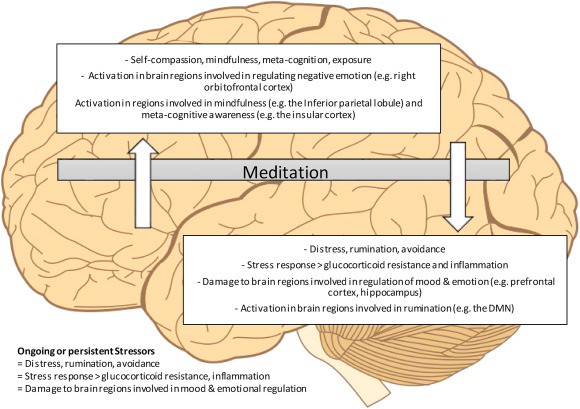
**Research-Driven Techniques for Enhanced Mental Sharpness**
In an era brimming with distractions and unending stress, mindfulness presents a route to tranquility, lucidity, and improved concentration. Whether you seek inner peace, aim to alleviate anxiety, or desire to enhance your efficiency, mindfulness stands out as an influential resource.
### The Mind and Mindfulness: The Internal Mechanisms
Recent research indicates that consistent mindfulness practice can induce lasting shifts in how the brain operates. These alterations can foster enhanced emotional regulation, improved cognitive sharpness, and lower stress levels.
**1. Increased Grey Matter in Crucial Brain Regions**
Research published in *Psychiatry Research: Neuroimaging* discovered that mindfulness may elevate grey matter in regions associated with memory, learning, and emotional regulation — such as the hippocampus and prefrontal cortex. These areas are essential for memory retention, thoughtful decision-making, and better emotional handling.
**2. Fortifying the Prefrontal Cortex**
Referred to as the brain’s “executive,” the prefrontal cortex facilitates focus, planning, and distraction avoidance. Mindfulness bolsters this area, making it simpler to remain on track and curb impulsive actions.
**3. Soothing the Default Mode Network (DMN)**
The DMN becomes active when your thoughts drift or linger on the past. Mindfulness calms this network, allowing for better presence and concentration. Reduced mental wandering equates to diminished stress and lower levels of anxiety.
**4. Neuroplasticity: The Brain’s Capacity for Change**
Mindfulness enhances neuroplasticity — the brain’s potential to forge new connections and adjust. Through consistent practice, the brain reorganizes itself in facets related to attention, emotional management, and decision-making.
### Neuroscientific Advantages of Mindfulness
**Enhanced Emotional Management**
Mindfulness prompts you to observe your thoughts impartially. This approach aids in effective emotion regulation and can serve as a buffer against anxiety and depression.
**Reduction in Stress**
Mindfulness lowers the secretion of cortisol, the hormone responsible for stress. This physiological shift facilitates remaining calm and centered during challenging times.
**Augmented Concentration and Memory**
Studies indicate that mindfulness elevates memory capabilities and attention spans. You become more adept at maintaining focus, resisting distractions, and processing information efficiently.
**Support for Mental Well-being**
Mindfulness has demonstrated effectiveness in addressing issues such as depression, anxiety, and PTSD. Therapies like Mindfulness-Based Cognitive Therapy utilize mindfulness to interrupt the cycle of persistent negative thoughts.
### Mindfulness and Brain Physiology
**Changes in Brain Structure**
Mindfulness can alter the tangible structure of the brain, enhancing grey matter density in areas associated with memory and emotion.
**Thicker Prefrontal Cortex**
This brain region, which governs decision-making and self-regulation, becomes more robust with regular mindfulness practice.
**Improved Hippocampus**
Mindfulness contributes to an increase in the size of the hippocampus, bolstering memory and resilience.
**A More Tranquil Amygdala**
The amygdala, responsible for fear responses, becomes less reactive. This supports your ability to remain composed in high-pressure situations.
### A Long-Term Commitment to Mental Well-being
Mindfulness may help decelerate age-related cognitive decline and diminish the risk of conditions such as Alzheimer’s. It promotes brain longevity by safeguarding areas associated with attention and processing.
### Practicing Mindfulness in Everyday Life
Meditation doesn’t require hours of your day. Just ten minutes daily — or even a few moments of mindful breathing — can transform your brain. Integrating mindfulness into brief moments — such as during meals, walks, or listening — can create significant impacts.
### The Key Takeaway
Mindfulness is not just a passing trend — it’s a scientifically validated brain training technique. It enhances your quality of life by fostering improved attention. The evidence is undeniable — mindfulness is effective. Are you prepared to put it into practice?